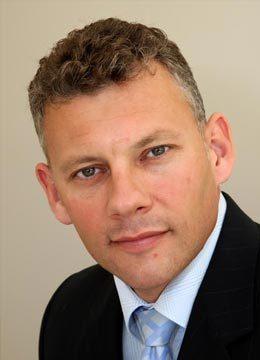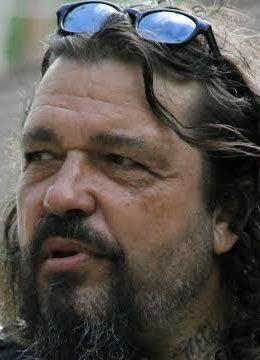This article appears in The Incarceration Issue, a special edition of VICE AustraliaWithout thinking about them all that much, societies are served by prisons in a number of ways, to varying degrees of satisfaction. To get a handle on how different people in the community see the role of prisons in Australia, we asked the following experts. Andy Beck
Andy Beck
Deputy Managing Director, Justice and Community, Serco Asia Pacific
In the simplest terms, prisons exist for punishment, deterrence, and reform. But not all those who commit crime are rational individuals making reasoned choices. Many have a plethora of underlying issues which lead to a downward spiral ending in incarceration. While these don't excuse wrongdoing, it is important to understand them.Many forget that nearly all prisoners will return to society. It's vital that each one does so having grown as a person, addressed the issues behind their offending, taken responsibility, and repaired some of the harm they have caused.Prison staff can help them to do this and give them the right opportunities to turn their lives around. Through fair, just, engaging, and structured regimes, they can make a positive difference, which means everyone will be that much safer. Dr Bronwyn Naylor
Dr Bronwyn Naylor
Associate Professor in Law at Monash University
How a society uses imprisonment is a political choice; it is not a deterrent and is not related to crime rates. So prisons should only be for criminals who are dangerous and need to be in prison to keep the community safe, or people whose crime are so serious that a term of imprisonment is the only possible punishment. We need to use different sorts of punishment besides prison for other people who commit crimes and aren't in those groups. "Little" Mick Kosenko
"Little" Mick Kosenko
President of the Brisbane Rebels Motorcycle Club
Seems as of late, prisons are for threatening people with. Our government has appointed themselves judge, jury, and executioner, is pressuring people into false statements, causing many wrong guilty verdicts. Considerable amounts of prison time are being done by persons before a court date is even settled upon, and this time is then not being considered when a verdict is reached. Prisons should not be used only for harsh punishment but primarily as a rehab system; although, having endless drug-flow within the prison system is not helping persons on either side of the fence.Paul (last name withheld)
Victims of Crime Compensation & Counselling Services, Melbourne
Prison is a revolving door that's built to keep the legal system operating and the multi–billion dollar industry functioning. The reason behind victims feeling disillusioned with the criminal justice system is they're almost totally insignificant in the entire process. The only time when you're useful is when you're used as witness, but aside from that, you're not really considered. If the government hears about things like domestic violence, they should stop trying to destroy those services provided, and give support to victims and actually do something about it. Sister Monica Weedon
Sister Monica Weedon
Franciscan sister, former Men's Prison Chaplain
Tragically the need for prisons is largely a consequence of society neglecting to seriously address the many root causes of offending behaviour. Prisons, too easily, put people out of sight and out of mind and allow us to keep ignoring the very societal ills which contribute to the rate of incarceration.Father Bob McGuire
Catholic Priest, Founder of Father Bob Foundation
Prisons at their worst are waste disposal units, or storage places for society's psycho-socially challenged members. But at their best, they're creative and innovative, where restorative justice is practised. But in the primitive ones there is only punitive justice. In rehabilitation prisons, there is innovation. There, you have to do all kinds of imaginative things, like music and theatre and dance. I've seen these experiments, involving male and female prisoners in these initiatives. The aim of the exercise is to give these persons—who've been starved of emotional nutrition as children—self-awareness. That's what they're lacking. Their damage is caused by their inability to feel. Tammy Solonec
Tammy Solonec
Indigenous Officer for Amnesty International
I think prisons should be for rehabilitation, and for helping people address the causal factors behind their offending. For a lot of people, prison is about punishment, but I guess I see it a bit differently. Most people that end up in prison generally come from poor socio-economic circumstances, and often it's a lot of those causal factors that need to be addressed, and that's what prisons need to be a bit about.Anonymous
Prison officer, Victoria
To put it simply, they're there to keep the community safe from the offenders. I don't think they're there for rehabilitation, and that's my personal belief. I think rehabilitation is a bit of a wank because working in a prison for 10 years, you see the same guys coming back in. With Corrections Victoria specifically, they run all of these rehabilitation programs, but really, nobody's going to employ somebody with a criminal record. Their only option is to go back to dealing drugs, stealing from people, whatever.If anything, people get worse in prison. Say somebody gets locked up for a drink-driving offence—really they're not a criminal per se—but in order to survive in jail they've got to do some pretty horrible things. And for all of these offenders that have to address certain needs in order to get their release, it's pretty easy to go through the motions and say the right things. Adrian Bayley's the perfect example: he did all of these programs and did all of the right things, got released, then murdered a woman. So basically prisons are here to protect society from these offenders. Julian Burnside QC
Julian Burnside QC
Australian barrister
The purpose of punishment (including incarceration) is to correct the behaviour of those being punished. Incarceration should therefore aim to improve the prisoner: it should aim to help rid the prisoner of educational or other disadvantages which led them to crime. It should aim to equip them to deal more effectively with society when they are released. The prison system does not seem to do that.Wade Noonan
Minister for Police and Corrections, Victoria
We have prisons because for some crimes the deprivation of liberty is the only just punishment. But each prison is different, and there is more than one type of prisoner, too. Some have committed awful crimes. Some are young, looking for a second chance. Many are drug addicts, getting treatment for the first time. One thing that shocked me was that for some women, prison is the only time they are free from family violence. Prison was actually a place of refuge.Derryn Hinch
Controversial broadcaster, former inmate
The obvious thing is that it's a punishment. It's a deprivation of freedom, and I can speak from experience having been in there several times. I'm not a "hang 'em high" kind of person, but I don't like depriving people of basic amenities in jails, and I can see why there's TV sets et cetera, because I believe the biggest punishment is the deprivation of your freedom. We are treated the way we treat our criminals. I've had politicians say to me there's no votes in prisons, so you don't want to have improved prisons—but you're judged by the way you treat your transgressors as well. Professor Michael Levy
Professor Michael Levy
Director of Corrections Health at the Australian National University
Its purpose is to incapacitate people. It's been used to lock up disenfranchised people and prosecute the sharp end of social policy about drugs and similar social policies. They're unchallenged in what they do because there's been no credible alternative. It's a very powerful institution and it's been abused. It's meant to be the place of punishment and last resort. But it's becoming more and more indiscriminately a place to lock up the poor and drug-addicted.

Deputy Managing Director, Justice and Community, Serco Asia Pacific
In the simplest terms, prisons exist for punishment, deterrence, and reform. But not all those who commit crime are rational individuals making reasoned choices. Many have a plethora of underlying issues which lead to a downward spiral ending in incarceration. While these don't excuse wrongdoing, it is important to understand them.
Advertisement

Associate Professor in Law at Monash University
How a society uses imprisonment is a political choice; it is not a deterrent and is not related to crime rates. So prisons should only be for criminals who are dangerous and need to be in prison to keep the community safe, or people whose crime are so serious that a term of imprisonment is the only possible punishment. We need to use different sorts of punishment besides prison for other people who commit crimes and aren't in those groups.

President of the Brisbane Rebels Motorcycle Club
Seems as of late, prisons are for threatening people with. Our government has appointed themselves judge, jury, and executioner, is pressuring people into false statements, causing many wrong guilty verdicts. Considerable amounts of prison time are being done by persons before a court date is even settled upon, and this time is then not being considered when a verdict is reached. Prisons should not be used only for harsh punishment but primarily as a rehab system; although, having endless drug-flow within the prison system is not helping persons on either side of the fence.
Advertisement
Victims of Crime Compensation & Counselling Services, Melbourne
Prison is a revolving door that's built to keep the legal system operating and the multi–billion dollar industry functioning. The reason behind victims feeling disillusioned with the criminal justice system is they're almost totally insignificant in the entire process. The only time when you're useful is when you're used as witness, but aside from that, you're not really considered. If the government hears about things like domestic violence, they should stop trying to destroy those services provided, and give support to victims and actually do something about it.

Franciscan sister, former Men's Prison Chaplain
Tragically the need for prisons is largely a consequence of society neglecting to seriously address the many root causes of offending behaviour. Prisons, too easily, put people out of sight and out of mind and allow us to keep ignoring the very societal ills which contribute to the rate of incarceration.Father Bob McGuire
Catholic Priest, Founder of Father Bob Foundation
Prisons at their worst are waste disposal units, or storage places for society's psycho-socially challenged members. But at their best, they're creative and innovative, where restorative justice is practised. But in the primitive ones there is only punitive justice. In rehabilitation prisons, there is innovation. There, you have to do all kinds of imaginative things, like music and theatre and dance. I've seen these experiments, involving male and female prisoners in these initiatives. The aim of the exercise is to give these persons—who've been starved of emotional nutrition as children—self-awareness. That's what they're lacking. Their damage is caused by their inability to feel.
Advertisement

Indigenous Officer for Amnesty International
I think prisons should be for rehabilitation, and for helping people address the causal factors behind their offending. For a lot of people, prison is about punishment, but I guess I see it a bit differently. Most people that end up in prison generally come from poor socio-economic circumstances, and often it's a lot of those causal factors that need to be addressed, and that's what prisons need to be a bit about.Anonymous
Prison officer, Victoria
To put it simply, they're there to keep the community safe from the offenders. I don't think they're there for rehabilitation, and that's my personal belief. I think rehabilitation is a bit of a wank because working in a prison for 10 years, you see the same guys coming back in. With Corrections Victoria specifically, they run all of these rehabilitation programs, but really, nobody's going to employ somebody with a criminal record. Their only option is to go back to dealing drugs, stealing from people, whatever.If anything, people get worse in prison. Say somebody gets locked up for a drink-driving offence—really they're not a criminal per se—but in order to survive in jail they've got to do some pretty horrible things. And for all of these offenders that have to address certain needs in order to get their release, it's pretty easy to go through the motions and say the right things. Adrian Bayley's the perfect example: he did all of these programs and did all of the right things, got released, then murdered a woman. So basically prisons are here to protect society from these offenders.
Advertisement

Australian barrister
The purpose of punishment (including incarceration) is to correct the behaviour of those being punished. Incarceration should therefore aim to improve the prisoner: it should aim to help rid the prisoner of educational or other disadvantages which led them to crime. It should aim to equip them to deal more effectively with society when they are released. The prison system does not seem to do that.Wade Noonan
Minister for Police and Corrections, Victoria
We have prisons because for some crimes the deprivation of liberty is the only just punishment. But each prison is different, and there is more than one type of prisoner, too. Some have committed awful crimes. Some are young, looking for a second chance. Many are drug addicts, getting treatment for the first time. One thing that shocked me was that for some women, prison is the only time they are free from family violence. Prison was actually a place of refuge.Derryn Hinch
Controversial broadcaster, former inmate
The obvious thing is that it's a punishment. It's a deprivation of freedom, and I can speak from experience having been in there several times. I'm not a "hang 'em high" kind of person, but I don't like depriving people of basic amenities in jails, and I can see why there's TV sets et cetera, because I believe the biggest punishment is the deprivation of your freedom. We are treated the way we treat our criminals. I've had politicians say to me there's no votes in prisons, so you don't want to have improved prisons—but you're judged by the way you treat your transgressors as well.

Director of Corrections Health at the Australian National University
Its purpose is to incapacitate people. It's been used to lock up disenfranchised people and prosecute the sharp end of social policy about drugs and similar social policies. They're unchallenged in what they do because there's been no credible alternative. It's a very powerful institution and it's been abused. It's meant to be the place of punishment and last resort. But it's becoming more and more indiscriminately a place to lock up the poor and drug-addicted.
